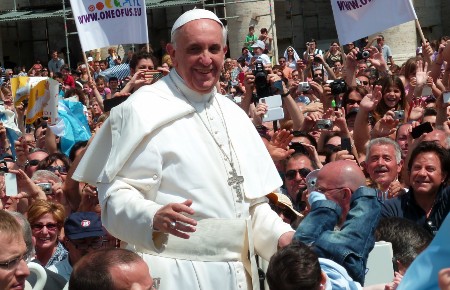Does more pollution mean fewer hurricanes?
FREE Catholic Classes
So now it's okay to pollute? Apparently, it's more than okay, but it's good to do so. At least that is the initial finding from scientists at Britain's Meteorological Office studying tropical storms. According to their research, higher levels of atmospheric pollution can mean fewer, not more, tropical storms.
Highlights
Catholic Online (https://www.catholic.org)
6/25/2013 (1 decade ago)
Published in Green
Keywords: aerosols, global wamring, climate, change, pollution
LOS ANGELES, CA (Catholic Online) - Reporting in the journal Nature Geoscience, scientists from Britain's Meteorological Office have found that North Atlantic hurricanes are more frequent when air quality is better.
This is initially counter to everything we hear from climatologists. Normally, we hear strident warnings that more pollution means more hurricanes, tornadoes, superstorms, and the like. So what gives?
According to climatologist Nick Dunstone and his fellow researchers who wrote the paper for Nature Geoscience, particles in the atmosphere, known as aerosols, play a more important role that previously thought in the storm cycle.
Aerosols are distinct from greenhouse gasses, which have been accused of warming the planet and causing more severe weather around the globe.
Until recently however, it has been impossible for scientists to tell how each of these pollutants affected the atmosphere, but new research shows that while greenhouse gasses can stay in the atmosphere for decades, aerosols last for an average of about two weeks.
This fact allowed new research that showed historical patterns of human pollution, with aerosols rising in concentration until World War I, when they fell. After a brief return in the postwar period, they fell off again during the Great Depression. During the Second World War, they remained lower, then picked up during the boom after the war. Finally, in the late 20th century, aerosols dropped again, consistent with waves of legislation in the western world that regulated pollution.
Researchers found that periods with less aerosols saw more frequent and severe tropical storms and hurricanes.
It is thought that aerosols cooled the planet, specifically ocean waters, and made hurricanes less likely.
Meanwhile, they also point out that human pollution, such as rises in smog levels, correlate strongly with the desertification of the Sahel and other desert regions. They also pointed out that the impact of aerosols is distinct from that of greenhouse gasses.
However, they also warned that their work is just an initial study and that further follow-up research is needed. They also noted that volcanoes and other natural events can inject aerosols into the atmosphere, so humans are not the sole culprit in aerosol-driven climate change.
Nonetheless, we can have an impact on our environment. What that impact is, and whether it's for better or worse, depends on a complex series of factors, some of which remain unquantified.
---
'Help Give every Student and Teacher FREE resources for a world-class Moral Catholic Education'
Copyright 2021 - Distributed by Catholic Online








 Daily Readings for Friday, April 26, 2024
Daily Readings for Friday, April 26, 2024 St. Cletus: Saint of the Day for Friday, April 26, 2024
St. Cletus: Saint of the Day for Friday, April 26, 2024 Prayer before the Closing of the Day: Prayer of the Day for Friday, April 26, 2024
Prayer before the Closing of the Day: Prayer of the Day for Friday, April 26, 2024
